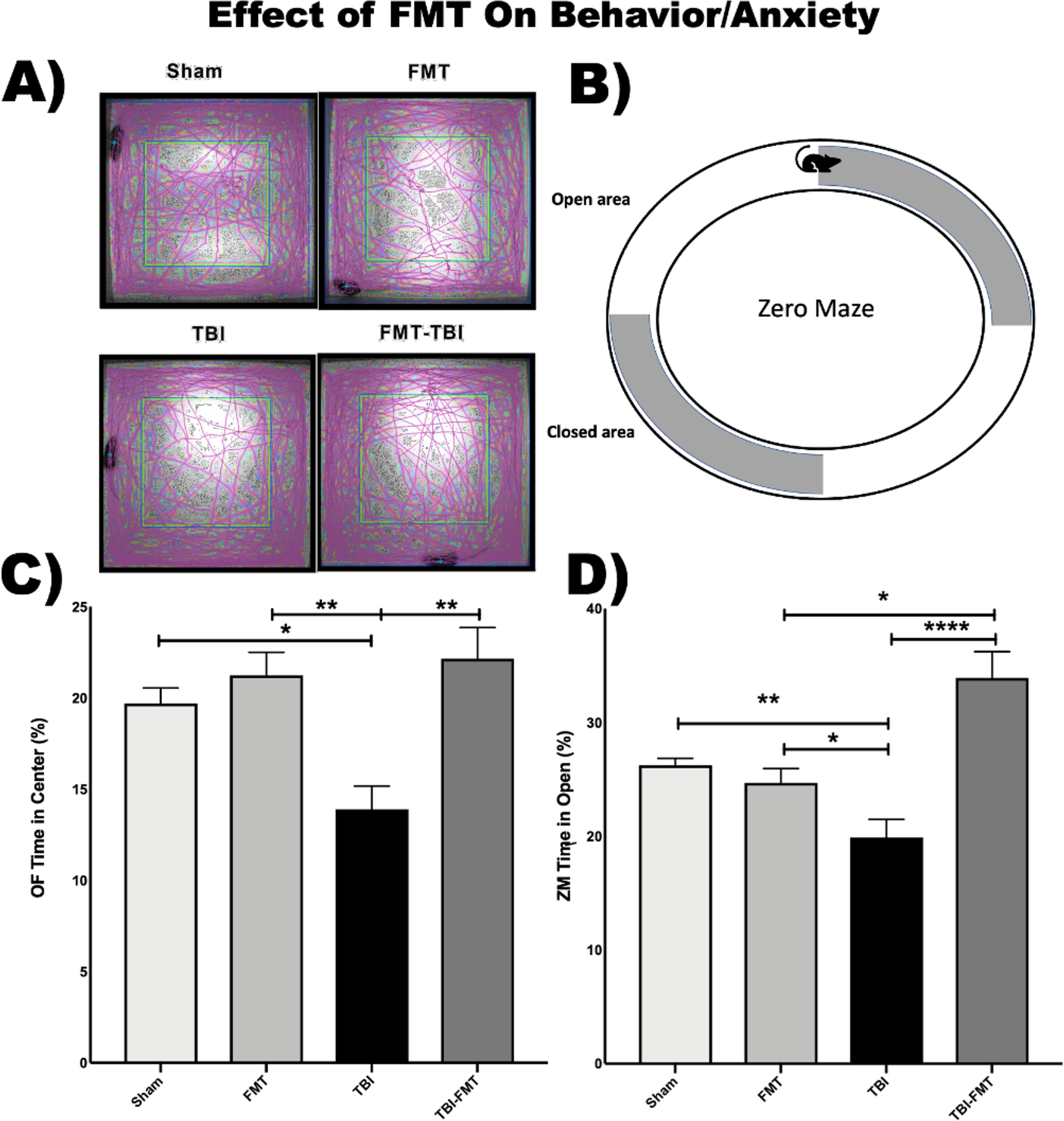Fig. 4. Fecal microbiome transfer alters anxiety and exploratory behavior in TBI mice.

(A) Open Field (OF) was used to assess anxiety and exploratory behavior. The purple lines in this panel represent the path taken by mice in the five-minute testing period. (B) Elevated Zero Maze (ZM) was used to assess for post-injury anxiety. More time spent in the open areas indicates a higher inclination towards exploration and a lower level of less anxiety. (C) OF testing demonstrated preserved exploratory behavior in TBI mice post injury treatment as demonstrated by the increased percentage of time spent in the center of the open field compared to untreated injured animals (22% vs 19%: N = 5/group). (D) ZM demonstrated preservation of normal anxiety-like behavior in FMT-treated TBI mice as compared to vehicle-treated TBI mice with a significant increase in time spent in the open area (39% vs 19%; P = 0.0001; N = 5/group).
